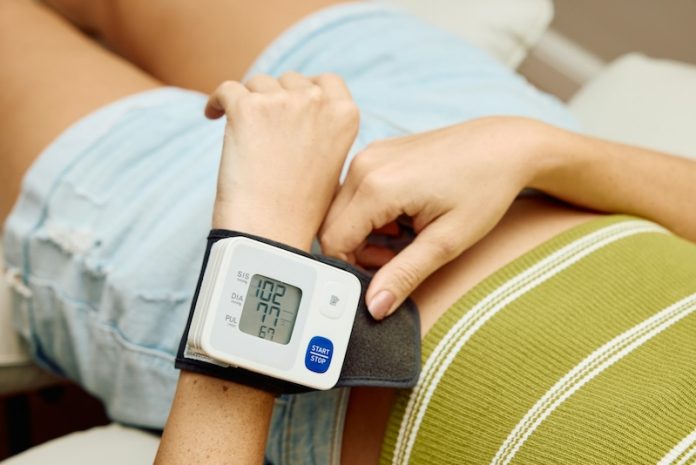
Scientists at the University of Miami recently conducted a study that sheds new light on how blood pressure affects our brain health, especially as we age.
They wanted to understand how blood pressure relates to serious issues like memory loss, strokes, and unexpected falls. What they found could change how we think about protecting our brains as we get older.
Blood pressure works like the force of water flowing through a hose. When you measure it, you get two numbers. The first one, called systolic pressure, represents the force when your heart pumps blood.
The second number, known as diastolic pressure, is the pressure when your heart is resting between beats. Doctors usually worry if the diastolic number is 80 or higher because it means the pressure might be too much.
In this study, researchers were particularly focused on something called white matter lesions in the brain. These lesions can be thought of as tiny scars that form when the brain isn’t working as well as it should.
They make it harder for the brain to send signals, which can affect a person’s ability to think clearly, move smoothly, and even stay balanced.
The scientists studied over 1,200 people, all aged 50 and older, to see if their blood pressure was connected to the number of white matter lesions in their brains.
The surprising finding was that people with lower diastolic blood pressure (the second number) had fewer of these scars. This was a twist, as many had believed that systolic pressure, the first number, was the main concern for brain health.
The research showed that different parts of the brain were affected by blood pressure in different ways. Those with diastolic pressure below 80 had fewer scars in certain brain regions compared to people whose diastolic pressure was higher, particularly above 90.
Why does this matter? Think of the brain as a complex system of highways where messages constantly travel back and forth. White matter is like the brain’s main network for carrying these messages.
When there are scars, it’s like having potholes on a busy road, slowing everything down and causing problems. If too many signals get disrupted, it can lead to serious issues like memory loss, strokes, or even frequent falls.
As people age, these brain scars become more common. By the time someone reaches 60, around 20% of people will have these lesions, and the percentage keeps rising with age.
However, this study offers hope. By keeping our diastolic blood pressure in check, we might be able to reduce the number of scars and protect our brain function.
Dr. Michelle R. Caunca, who led the research, highlights that managing blood pressure isn’t just about preventing heart attacks or strokes. It’s also key to keeping our brains sharp and our bodies steady.
Regular blood pressure checks and working with a doctor to maintain a healthy range could help prevent brain damage and keep us mentally sharp as we age.
In short, this study suggests that keeping an eye on blood pressure, particularly the diastolic number, could be important for brain health.
Managing blood pressure well might help us avoid memory problems, falls, and other issues that can arise as we get older. It’s another reminder that staying healthy involves not just our hearts, but also our brains.
If you care about high blood pressure, please read studies that early time-restricted eating could help improve blood pressure, and natural coconut sugar could help reduce blood pressure and artery stiffness.
For more information about blood pressure, please see recent studies about How to eat your way to healthy blood pressure and results showing that Modified traditional Chinese cuisine can lower blood pressure.
Copyright © 2024 Knowridge Science Report. All rights reserved.



